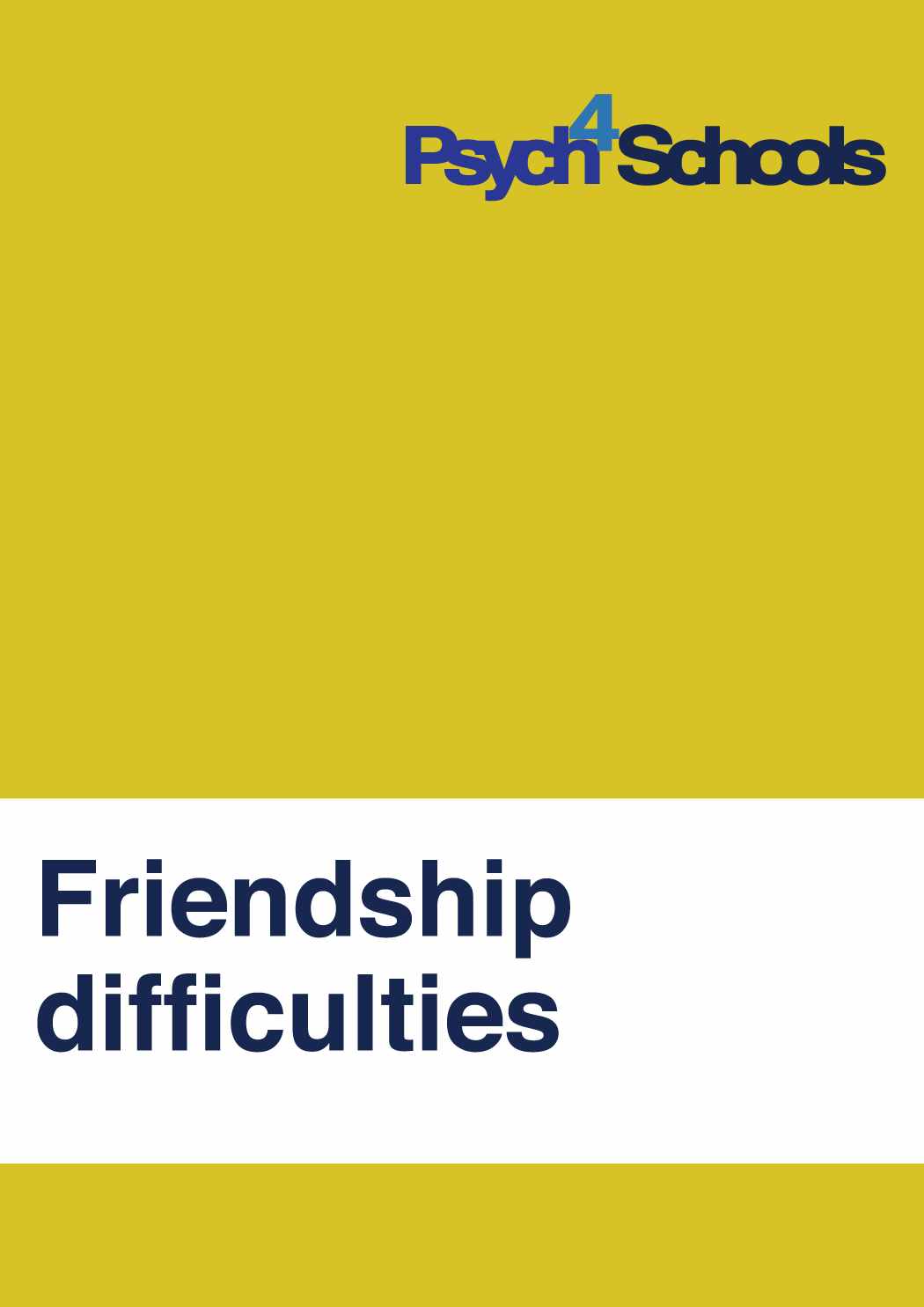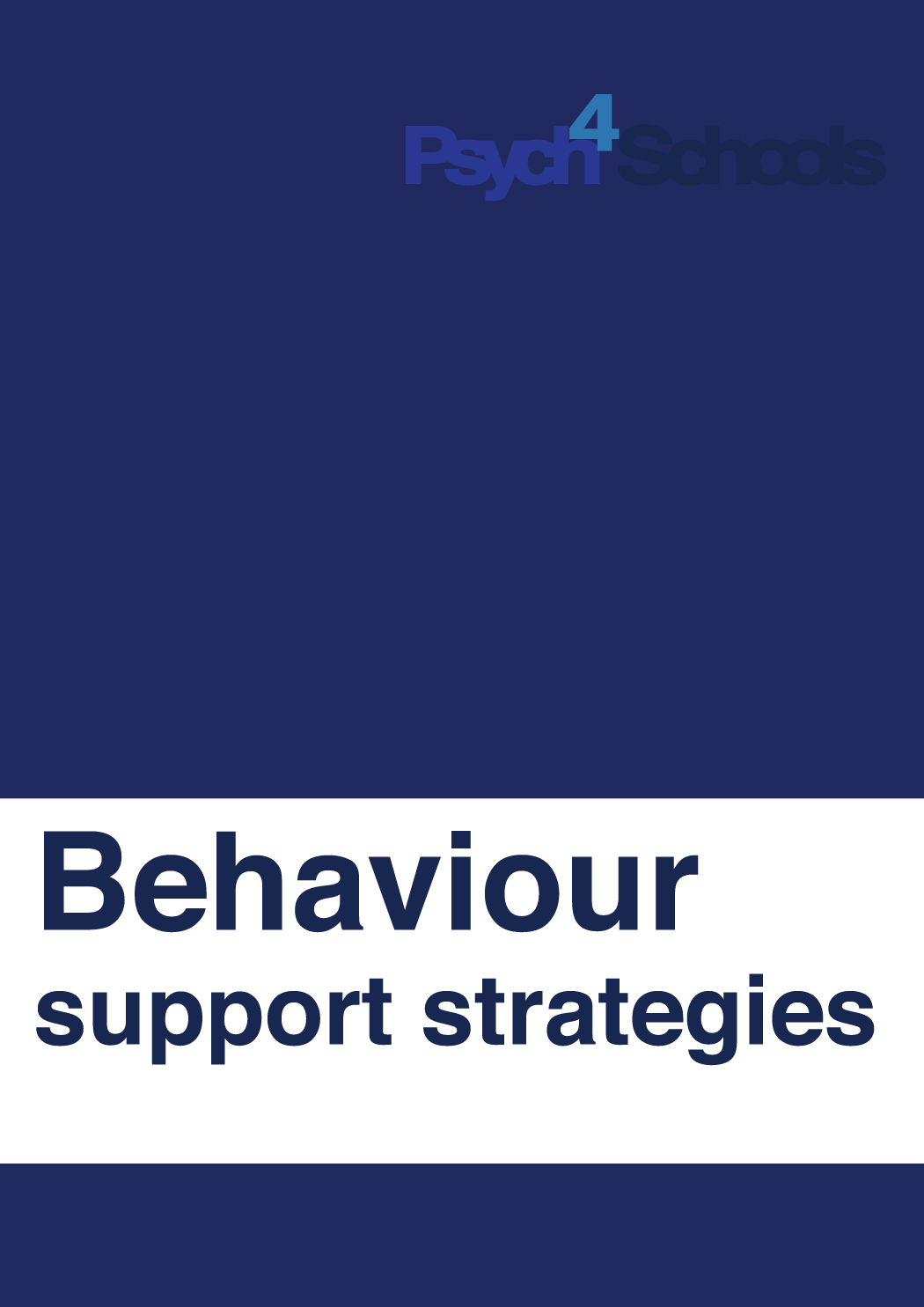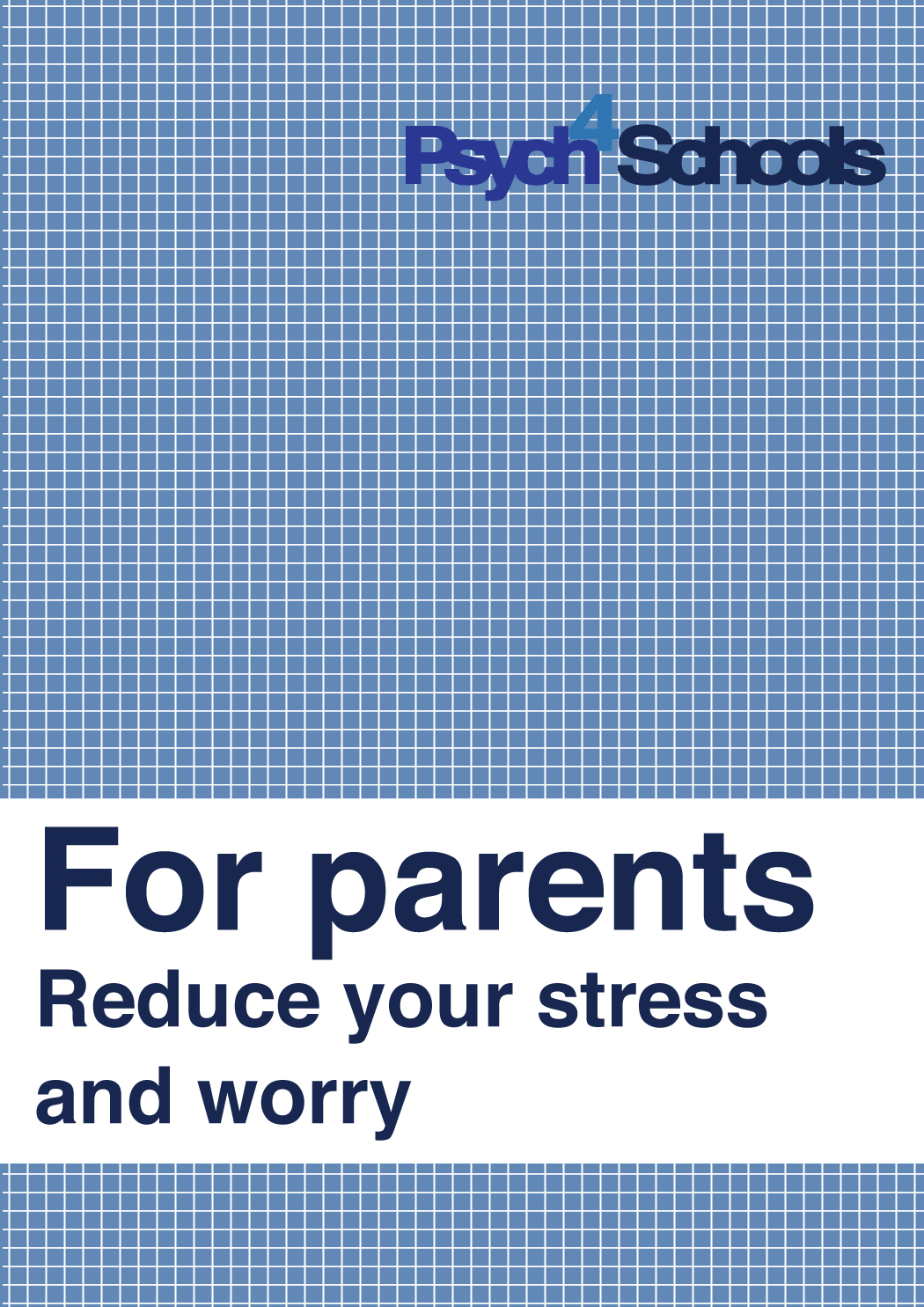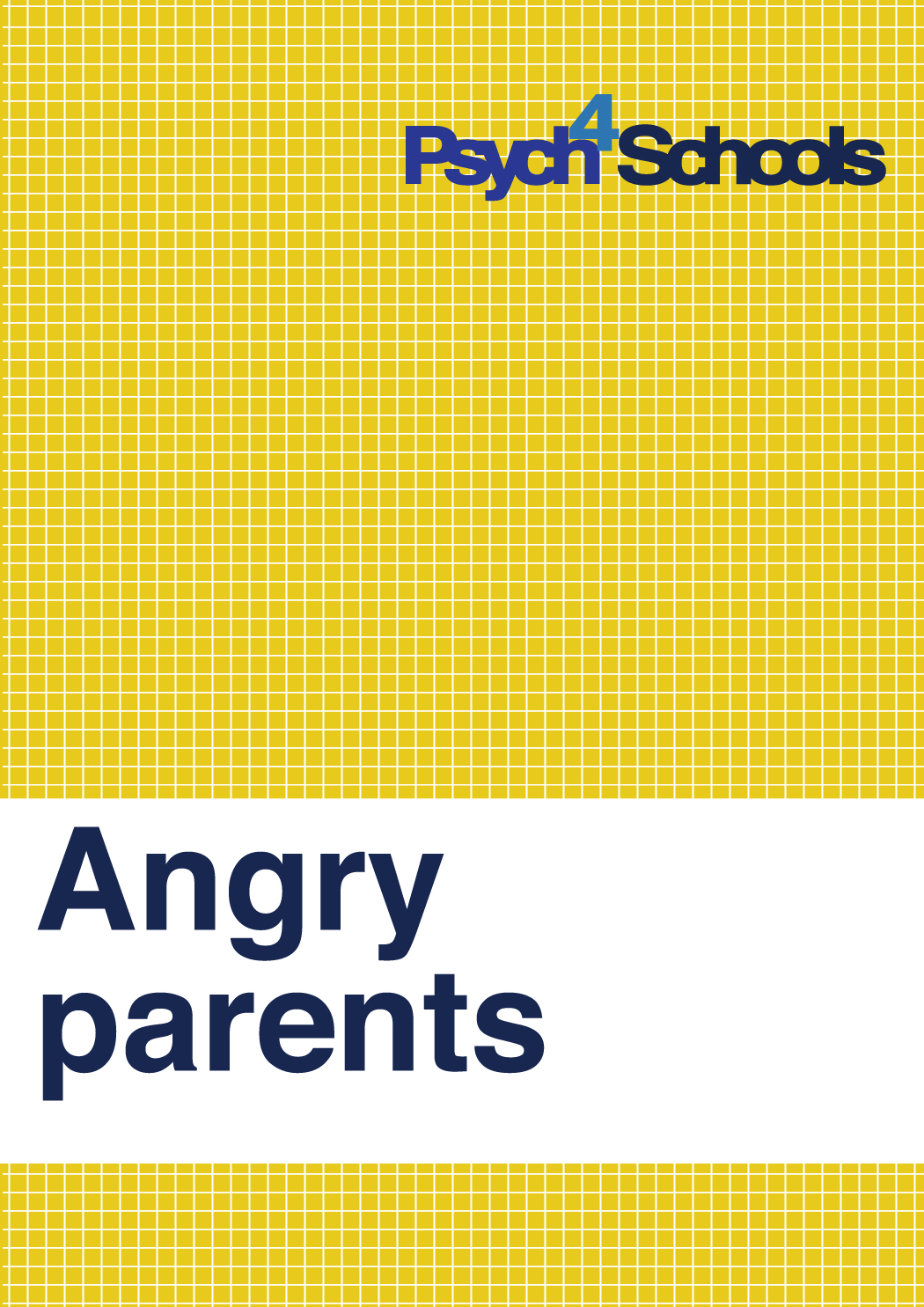Friendship difficulties
The following is an excerpt from the ebooklet Working with children who have difficulty making friends by Zoe Ganim and Murray Evely.
Introduction
Friendship offers opportunities for sharing, learning, fun, excitement, self-disclosure, support, advice and long-term relationships. For many children, making and keeping friends is quite effortless, but for some it is a challenge. Sadly, about one in ten school-age children have no friends and are disliked by most of their classmates.[1] Asher, S.R., and Williams, G.A., (1996) Children without friends, Part 1: Their problems, research for the National Network for Child Care’s … Continue reading This ebooklet outlines some critical aspects of friendship, and strategies to support the child who has friendship difficulties.
The importance of friendship
Having friends improves wellbeing, attitudes to learning and academic performance. Having close friends is related to success at school and in later life. Hence, developing and maintaining friendships is important for a child’s social, emotional, psychological and moral development.
Good friendships enable children to learn and practise important social and emotional skills. These include communicating effectively, getting along with others, coping with and solving problems, self-regulation of emotions, and understanding and responding to the reactions and points of view of others. Within friendship groups, children develop their ability to think about issues that arise between friends, to negotiate and solve problems.
Children and adolescents who find it difficult to make friends often feel lonely and unhappy. They are more at risk of academic underachievement and dropping out of school.
Children with no friends are more likely to suffer from depression and anxiety than those who have at least one friend. They are also more likely to be harmed by experiences of victimisation and rejection. [2] The power of friendship: Protection against an escalating cycle of peer victimization. Hodges, Ernest V. E.; Boivin, Michel; Vitaro, Frank; … Continue reading
Having just one supportive, loyal, trustworthy friend promotes the development of psychological resilience.[3]Graber, R., Turner, R. and Madill, A. (2015), Best friends and better coping: Facilitating psychological resilience through boys’ and girls’ … Continue reading It helps play a protective role when managing relationships with a difficult peer, peer group or bullying. The quality of a friendship can impact on resilience, providing a buffer against stress and stressful life events. Close friends usually talk regularly, participate in pro-social activity and learn social competence and conflict resolution skills.
Developmental nature of friendship
Children tend to play with friends who are like them in some way. For example, they may be similar in age, gender, behavioural tendencies,[4] Rubin, K., Lynch, D., Coplan, R., Rose-Krasnor, L., & Booth, C. (1994). “Birds of a feather…”: behavioral concordances and … Continue reading beliefs, appearance, attitudes, interests and likes.
Most children begin to develop the skills underpinning friendship as infants and toddlers.[5] Dunn J. (2004) Children’s Friendships: The Beginnings of Intimacy. Oxford: Blackwell Publishing While young children can be black and white in their sense of justice and fairness and misinterpret social situations, over time friendships usually become more complex, stable and intimate.
Young children (up to age 7 years)
Until middle childhood, friendships usually develop between children who play together because of shared circumstances. They may live nearby, be in the same class, share mutual interests, or have parents who are friends. At this age, most will show a preference for particular children they have a natural affinity for but will be happy to play with another child if they can agree on what to play.
Middle childhood (approximately 7 – 11 years)
During these years, friendship usually becomes more stable. Friendships are defined by fairness, loyalty and generosity, but often in a rigid way. If children do something nice for a friend, they expect some reciprocation. Children tend to be concerned with fitting in and being the same as others. Exclusive ‘clubs’ are common, often with complex rules and criteria about who is and isn’t included. Most children in this age group have at least one friend, and many have a group or close network of three to five friends.
Older children/adolescents (11 years +)
During this period, friendship reflects social, emotional, psychological and physical development. Children become more concerned with their friends’ feelings, motivations and intentions. Intimacy and trust increase. They seek out friends with whom they have an emotional connection, rather than just mutual interests, although these remain important. They begin to look for security, love and acceptance, amongst friends and the broader peer group. Friendships may not be fixed, and changes in relationships can occur as individuals mature.
Who is at risk?
The following children are more likely to have difficulty making and keeping friends. However, this is not necessarily the case, and the ability to establish and maintain friendships may be a strength for some of these children.
- Children with learning, communication and/or attention difficulties face barriers that may interfere with their ability to make and keep friends. Children with Attention Deficit Hyperactivity Disorder (ADHD), severe language disorder, selective mutism, Autism Spectrum Disorder, and non-verbal learning disorders (NVLD) fall into this category. When young, they may have friends when play is more concrete and often parallel. However, it can be difficult for some to retain friends as they get older and relationships become more complex and nuanced. Children with learning difficulties may have friends who also have learning or behavioural difficulties. Some will not develop effective social skills.
Information processing difficulties that many of these children have such as poor processing speed, can negatively influence the development of friendships and self-concept. For example, being slow to respond to others by name and unable to ‘think on your feet’ may lead to social awkwardness. Difficulties with listening and comprehension can interfere with success in the give and take of conversations. Other challenging behaviours such as impulsivity, can also get in the way of friendships. A few may be at risk of associating with students who display antisocial behaviour.
- Children with an intellectual disability have reduced adaptive behaviours and cognitive limitations. They may have poorly developed social skills and a lack of ability to understand another person’s perspective. Consequently, some may have difficulty making and maintaining friends, understanding social cues and rules, and interpreting non-verbal cues. In many ways, the child with an intellectual disability functions as a younger child and often prefers to play and be with younger students. However, most children with an intellectual disability have at least one friend and enjoy meaningful relationships.
- Children who have a teacher’s aide in the classroom or playground can have difficulty being part of friendship groups, not only because they are perceived as different, but the presence of support people, including parents and carers, can impede friendship-making opportunities.
- Children who are angry or aggressive are generally avoided by other children. This includes those who easily or frequently get upset and angry, arrive at school angry or those who don’t respect the personal space of others.[6] Action research observed by Murray Evely with assistant principals and teachers and 50 students in Years 3 to Year 9 across schools of varying … Continue reading As early as preschool and kindergarten, children show negative attitudes to peers who display aggressive or disruptive behaviour (such as not playing by the rules or having annoying or unpleasant behaviour). Angry and aggressive children may have friends, but often with other angry or aggressive children.
- Children who are bossy, mean, annoying, hurtful or arrogant are disliked by most peers.[7]Action research observed by Murray Evely with assistant principals and teachers and 50 students in Years 3 to Year 9 across schools of varying … Continue readingIn addition, being perceived as untrustworthy, ‘over the top’, or someone who uses triangular relationships impedes peer acceptance. In a triangular relationship one child tries to manipulate others through an ultimatum that they will only be their friend, so long as specific others are not friends.
- Children who are overweight or obese are often teased, bullied and excluded.[8]Schafer, DR, & Simpkins, SD (2014). Using social network analysis to clarify the role of obesity in selection of adolescent friends. American … Continue reading Understandably some will suffer from anxiety and/or depression, and some will have difficulty actively participating in class or physical activities. These difficulties add further barriers to developing friendships.
- Children who are anxious and depressed are three times more likely to have fewer friends than other children. [9] Evely, M. and Ganim, Z., (2011) Working with children who are bullied, Melbourne, Australia: Psych4Schools … Continue reading
- Children who are shy tend to spend less time in social situations and therefore less time learning from peers. Shyness may be perceived as unfriendliness, especially if the child does not speak, is not outgoing or is not involved in peer activities. This can lead to misunderstandings and social problems, and rejection by peers. Some can become targets for bullying.
- Children who frequently lie are unlikely to be trusted by peers, and often have complex social problems. Lying can have an emotional impact on the child who lies, those hearing the lie, and anyone included in the lie. Lying is associated with poor self-concept and anxiety.
- Children who identify as lesbian, gay, bisexual, transgender, intersex and questioning (LGBTIQ) may be bullied or discriminated against. A recent study found that one third of teenage boys wouldn’t want to have a same-sex- attracted friend.[10] ‘Major campaign aims to stamp out bullying.’ Beyond Blue website (31 May 2015). The article can be viewed at … Continue reading
- Children who have multiple absences from school, the neighbourhood, or peer activity can have problems making and keeping friends. Absences may be due to a medical condition, transience, family travels, sport and school withdrawal where parents and the child collude to stay at home for some non-approved reason.
- Children who are gifted may experience asynchronous or uneven development which can lead to perfectionism, heightened sensitivity, and being out of step socially with peers.[11]Evely, M. and Ganim, Z., (2011) Working with children who are gifted and talented, Melbourne, Australia: Psych4Schools … Continue readingWhile this may result in friendship difficulties from the beginning of schooling, for some of these children their leadership abilities can boost their social and emotional profiles resulting in popularity among peers, particularly during primary school.[12] Evely, M. and Ganim, Z., (2011) Working with children who are gifted and talented, Melbourne, Australia: Psych4Schools … Continue reading
- Children who are perceived as different from school community norms due to race, religion, parental and family background, poverty or wealth, appearance, personal hygiene issues or other circumstances may experience friendship difficulties.
Fights and friendship issues
It is normal for misunderstandings and disagreements to occur between friends. It is best to let children sort out most issues themselves where they possess the required social skills and personal resources. Dealing with small friendship issues can help to build resilience and coping skills through learning to problem solve and negotiate.
Social exclusion
Most school staff regard inclusion and acceptance as core values and aim to assist children who are at risk of exclusion by other children. However, other school community members including some parents and extended family may be less accepting or tolerant. Some may actively or subtly encourage their children to avoid or reject specific children, particularly if the child or the parent’s behaviour or presentation appears to deviate from perceived community or personal standards or norms. Such influences can be difficult to ameliorate.
Explicit communication of school values, family codes of conduct and inclusive behaviour policies might require diplomatic discussion and reinforcement by senior staff with some parents.
Toxic friendships
Toxic friendships tend to occur in the middle years and beyond and are more common amongst girls than boys. Here ‘frenemies’ can alternate between being overly affectionate and socially aggressive towards their ‘friend’, smoothly changing roles to enhance their social power.[13] Simmons, R (2011). Odd Girl Out, Revised and Updated: The Hidden Culture of Aggression in Girls. Mariner Books: USA. A child who may have been a good friend, may say mean things, maliciously compete with, exclude, ridicule or taunt their ‘friend’ while maintaining other aspects of the friendship. This is known as relational aggression. Such behaviour is a form of bullying that can be often very hurtful.
It can be difficult for schools to successfully identify and intervene to counter relational aggression. Promoting empathy, kind and respectful relationships and friendship groups beyond one ‘best’ friend can assist in countering relational aggression.
Friendships and social media
Social media may contribute to toxic friendships and friendship difficulties through harmful postings or real-time taunts. Schools and parents need to continuously work together to both prevent and quickly respond to cyberbullying with a range of strategies including open communication about healthy digital citizenship, self-help for users who are bullied, and fair codes governing social media use.
When to intervene
Inappropriate teacher or parent intervention can hamper skill development. Teacher intervention is warranted if the issue is persistent, serious or involves bullying. While teacher intervention may be necessary in some circumstances, generally talking things through and providing children with opportunities to practise new skills in social situations is more powerful in the longer term. Social and emotional competence develops through meaningful practice over time, in the same way that other skills are developed.
Some parents are uncomfortable leaving their child to solve small friendship issues and pressure teachers to intervene. If this is a recurring issue the teacher should meet with the parents. If necessary, a senior staff member could be included to explain the value of allowing children to learn to their own solve problems. If appropriate, refer parents to Psych4Schools handout, What parents can do to help their child with friendships. For more strategies see the Work with parents section on page 14.
When the incident has occurred online it can be difficult for schools to successfully identify and intervene. It can be challenging to identify the perpetrator, and/or the instigator will often deny that it is occurring, particularly when there are no witnesses to the bullying. With online bullying a screenshot of harmful comments or photos may enable a conversation to be initiated. When conversation fails, use of conflict resolution techniques, initially by the classroom teacher, or another suitably qualified teacher or professional is usually the most effective strategy. If the victim is highly distressed or at risk of more harm being done by a conversation, school staff should choose a more suitable intervention that protects the victim. Appropriate disciplinary action may need to be taken.
When to seek further assistance
A psychologist or senior staff member should be consulted when:
- Peers are afraid of or repeatedly reject the child.
- Parents regularly seek you out over concerns about their child’s friendship/s.
- The child is lacking in social or communication skills.
- The child is increasingly angry or withdrawn over a period of two to four weeks.
Referral to a psychologist, or speech pathologist for language and communication issues (with parent consent) can assist the child to learn appropriate skills, and to feel happier and more confident.
Strategies to support the child who has friendship difficulties
Select developmentally appropriate strategies from those below to assist children who have difficulty making and keeping friends. You may need to make adjustments or modifications to suit an individual or a group of children.
When supporting students with specific disabilities or conditions please also refer to the relevant ebooklets on our website.
When there is a social issue
Before implementing any plans reflect on realistic and developmentally appropriate expectations for the child. For example, it can be pointless asking the child to take responsibility for their behaviour in a relationship when they are too young or otherwise unable to manage a specific social skill. If the expectation requires higher-order thinking than the child possesses, concentrate your support and assistance around the child adopting an achieveable behaviour.
At times a child will need assistance to learn specific social skills or help with a friendship problem. If this is the case:
- Observe the child in the playground and classroom. See who they play with and how they interact. This can provide clues about behaviours that cause friendship difficulties.
- Meet privately with the child to discuss their friendship issues. This might be for five minutes before school or lunch. A regular check-in each week, fortnight or month may be beneficial. Though labour intensive, this will reduce the time spent assisting the child throughout the year with entrenched friendship, peer acceptance or behaviour issues.
- If the child has not approached you with the issue, first explain why you are talking with them. Talk sensitively about what you have observed in the playground or classroom, rather than what you think. Be specific. For example, ‘I noticed you have been sitting by yourself at lunchtime for the last week.’
For more tips and hints, including the next steps in helping the child solve their friendship problem purchase or download (members only) the full copy of the Working with children who have difficulty making friends ebooklet below.
ISBN978-1-921908-27-9
Copyright © Murray Evely and Zoe Ganim 2018
No part of this excerpt may be reproduced or reprinted without permission in writing from the publisher.
Click here to read copyright details, summary of the licence and terms and conditions to use and reproduce our digital materials granted to authorised users.
References
This article is an excerpt from the ebooklet Difficulty making friends.
Download the complete ebooklet for full access to strategies and resources, including:
- Build social inclusion
- Classroom and group organisation
- Lunch and break times
- Playground support plans
- Explicitly teach social skills
- When there is a social issue
- Use conflict resolution when there are issues within a group
- Basic conflict resolution steps
- Work with the child’s parents
- When the child is new to the school
- Toxic friendships/frenemies
- Children who require additional friendship assistance





